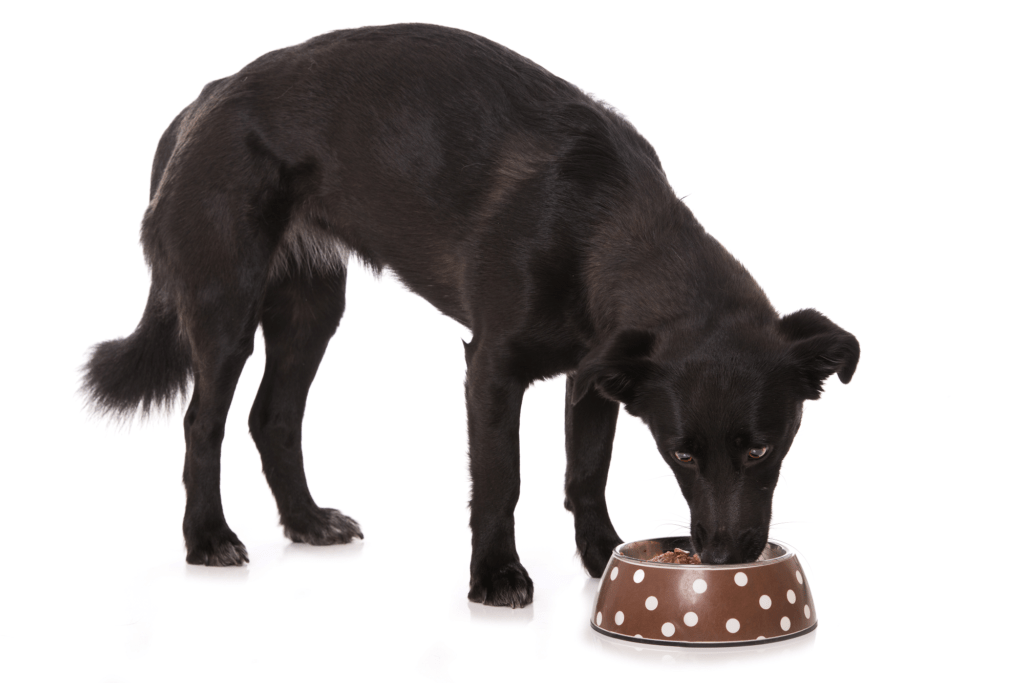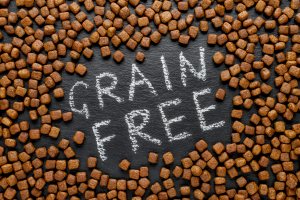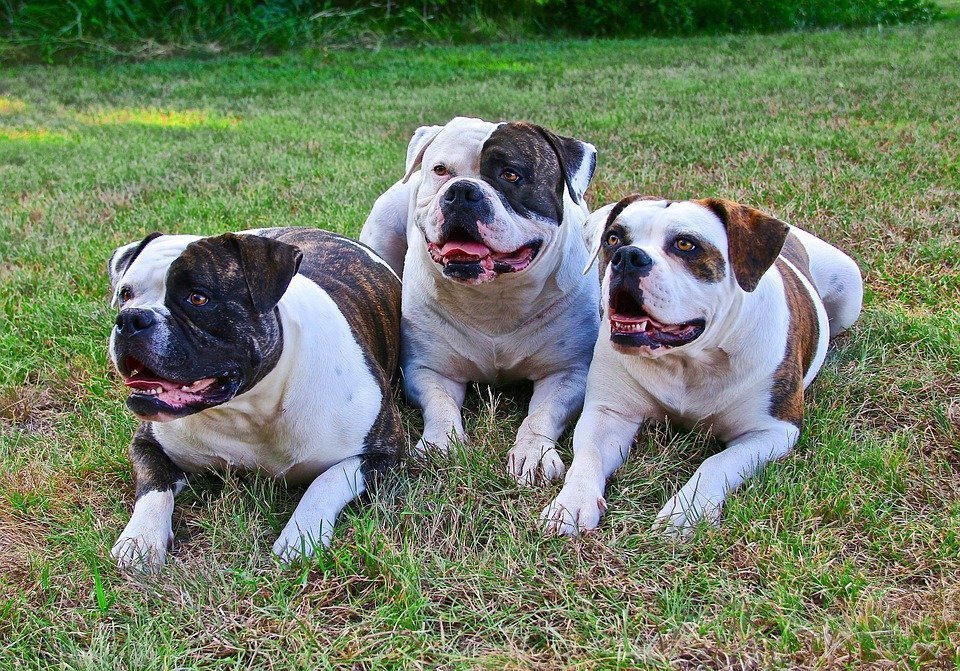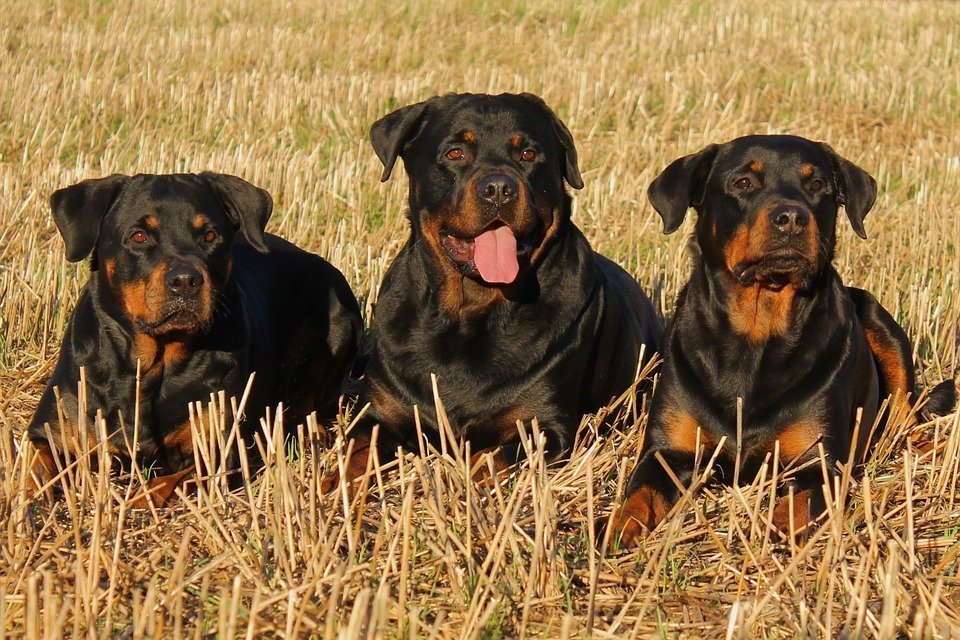This page contains affiliate links. This means that we may get a small commission for recommending products, if you choose to click on something and buy it. This does not cost you anything, but we wanted to be honest and let you know!
(Last Updated On: 10th August 2022)Table of Contents
Choosing The Right Grain-Free Dog Food
It can be a bit confusing when it comes to choosing the best dog food for your pooch this summer.
Most pooches are especially active in the summer and they must get the right diet and fuel for all that activity.
You love your furry buddy and want the very best for them. So how do you go about choosing the right food to feed them?
There are dozens of dog food brands and it can be challenging to decide which brand is best.
Merrick Brand Grain-Free
One of the most trusted brands since 1988 has been Merrick. Merrick offers a wide variety of both dry and moist dog food for dogs of all breeds, sizes, ages, and dietary needs.
When choosing a dry food to incorporate into your dog’s diet this summer, you will have a grateful dog if you choose Merrick Grain-Free Real Texas Beef & Sweet Potato Recipe Dry Dog Food.
Merrick’s is the bestselling kibble on Chewy.com.To tell you the truth, that recipe sounds like something I would like myself for dinner!
Gluten-Free
One of the things that makes this formula great for your dog’s diet is that it is entirely gluten-free.
If your pooch has a sensitive stomach, this formula from Merrick will help to ease their tummy issues.
If your pet is fortunate enough not to have tummy issues, this formula will help keep them from developing any.
The Merrick Grain-Free Real Texas Beef & Sweet Potato formula is entirely free of poultry products which can be a common source of sensitivity in dogs.
If Fido has a sensitivity to chicken or turkey this formula, which has no poultry, will be easy for them to digest.
Healthy Ingredients
The first ingredient on the Merrick grain-free Texas beef and sweet potato dog food product description label is beef, which has been carefully deboned.
The food is made with 70% protein and healthy fat.
Like ingredients in people’s food, ingredients in Merrick dry dog food are listed by quantity from highest to lowest.
The remaining 30% of ingredients will include produce, vitamins, minerals, fiber and other natural ingredients.
The Merrick Grain Free Texas Beef and Sweet Potato formula contains:
- Protein 38% min
- Fat 15% min
- Fiber 3.5 % min
- Moisture 11% max
- Caloric Content 3585 kcal/kg, 380 kcal/cup
Great For Shiny Coat
Developed with a high level of omega fatty acids, the Merrick Grain Free Texas beef formula will help keep your dog’s skin healthy and promote a shiny coat.
Added glucosamine and chondroitin will provide support to both hip and joint function.
This is especially helpful in larger breed dogs like Rottweilers, Saint Bernards and terriers that can be prone to developing hip dysplasia.
Made In The USA
Merrick uses USDA-certified beef for their dog food formulas and all of their dog food is made in the United States.
Most of the fruit and vegetables are sourced from local farmers and none is sourced from China.
The Texas beef and sweet potato blend is a complete and balanced formula for all stages of a dog’s life and is the Association of American Feed Control Officials (AAFCO) approved.
All Merrick formulas are crafted in Hereford, TX kitchen and cooked in the USA, in facilities that uphold FDA guidelines.
List Of Ingredients
Here is a complete list of the ingredients in Merrick Grain-Free Texas Beef and Sweet Potato dry dog food quoted from the manufacturer’s website Merrick Pet Care:
Deboned Beef, Lamb Meal, Sweet Potatoes, Peas, Potatoes, Potato Protein, Natural Flavor, Pea Protein, Pork Fat (preserved with mixed tocopherols), Flaxseed Oil, Apples, Salmon Oil, Deboned Salmon, Blueberries, Organic Alfalfa, Salt, Minerals (Zinc Amino Acid Complex, Zinc Sulfate, Iron Amino Acid Complex, Manganese Amino Acid Complex, Copper Amino Acid Complex, Potassium Iodide, Cobalt Amino Acid Complex, Sodium Selenite), Vitamins (Vitamin E Supplement, Vitamin A Supplement, Vitamin B12 Supplement, d-Calcium Pantothenate, Vitamin D3 Supplement, Niacin, Riboflavin Supplement, Biotin, Pyridoxine Hydrochloride, Folic Acid, Thiamine Mononitrate), Choline Chloride, Yucca Schidigera Extract, Dried Lactobacillus plantarum Fermentation Product, Dried Lactobacillus casei Fermentation Product, Dried Enterococcus faecium Fermentation Product, Dried Lactobacillus acidophilus Fermentation Product, Rosemary Extract.
Pros and Cons of Merrick Grain-Free Real Texas Beef & Sweet Potato Recipe Dry Dog Food.
Pros
- Dog Food Advisor gave Merrick Grain-Free foods a 5 out of 5-star rating in 2019.
- Quality source (human grade) for protein
- Features a variety of natural fruits and vegetables
- Free of fillers, artificial colors, and flavors
- Contains essential vitamins, minerals, and nutrients
- Made in the USA
Cons
- The product can be pricey, especially if you have several dogs
- Some owners felt that this product gave their dogs diarrhea
Going Against The Grain
Recent years have seen the trend for grain-free dog foods. Some manufacturers have entirely eliminated grains from their product lines.
Others, like Merrick, offer both formulas and let the pet owner choose what they prefer.
The general consensus is that the majority of dogs will be able to digest cooked grains without any difficulties.
Dogs Have Evolved
It is felt that early dogs developed genes that allowed their bodies to produce more of the protein (amylase) that allows starches to be digested in the intestines.
This step enabled the domestication of dogs as these adaptations allowed them to survive alongside humans who fed them scraps and leftovers.
We want to point out that there is no definitive answer one way or the other that a grain-free diet is a way to go for dogs.
Most dogs can digest corn, wheat, and other grains, as well as they do potatoes or other carbohydrates that are used to replace grains.
The best advice is to consult with your veterinarian. They will be able to advise you best. Your pooch will also be able to let you know what type of diet they can best tolerate.
The knowledge may come in the form of vomit or diarrhea and a sick pooch. So it is best to seek advice from a professional.
The Difference Between Grain and Grain-Free Dog Foods
There has been much discussion on the subject of grain-free dog foods. What exactly is the difference between grain and grain-free?
Some manufacturers of dog food will add grains to their foods. The most commonly used grains are wheat, corn, oatmeal, barley, rye, and rice.
Some add less common grains like quinoa, buckwheat, and sorghum. A grain-free dog food would have none of those products in their formulas.
Instead of the grains, they might add ingredients that provide carbohydrates like potatoes or sweet potatoes. Legumes like peas, beans, or lentils may also be added.
What to Look For In Grain-Free
When looking for grain-free food for your dog, make sure to select a high-quality product that will also deliver the nutrition that your pooch will need.
Look at the list of ingredients listed on the bag of kibble to see if the protein is at the top of the list.
The exception to this rule will be for canned dog foods. Those products may feature water or broth as the first ingredient listed.
For canned dog food, the whole protein should be listed second.
Avoid Artificial Colors, Flavours and Preservatives
Just the same as in your own food, you want to avoid or severely limit the number of artificial ingredients in your pet’s food.
Artificial colors, flavors, and preservatives can, in some cases, cause a dog to develop allergies.
At the very least, they represent an unnecessary addition to a dog’s food. You already know that your pet could care less about the color of their food.
Those colors are added to appeal to the pet parent. Dog food that is made with premium ingredients won’t need artificial colors.
The same goes for artificial flavors. Those of us who own a dog will attest to the fact that they will eat anything.
You have to oversee a dog to make sure they don’t eat anything gross that they find outside.
Getting into the garbage is their idea of a good time, so artificial flavorings in dog food is an unnecessary additive.
What To Avoid
Just as you don’t want Fido eating garbage that he finds outside, you also don’t want to purchase dog food that is only a step above garbage.
Carefully check the ingredients label. Meat meals and meat by-products are included in many dog foods and contain valuable protein.
Dogs find them delicious, too. If you see something that is questionable or can’t pronounce it, it is best to avoid that product.
This is another reason to stick with a well-known brand. You have more assurance that you are getting a quality product that will not harm your pet.
Probiotics Are A Bonus
Good for any pooch, probiotics are beneficial bacteria that help dogs digest their food more efficiently.
Quality kibble will be fortified with probiotics, although you will not find them in wet foods.
The absence of probiotics does not mean a lesser quality as it is not a necessity, but a bonus.
You can always add probiotics yourself to your pet’s food to aid digestion.
Omega-3Fatty Acids
These are important for your pooch. They can contribute to a healthy coat.
As your pet ages, omega-3’s can help to reduce inflammation.
If you have a puppy you are raising, the omega-3 will aid in proper brain and eye development.
You will find omega-3 fatty acids in plant oils, flax seed oil, along with salmon and fish oils.
Look for a food with Antioxidants
Antioxidants are as good for your pet as they are for you. They provide protection from the damage that free radicals can do.
Free radicals are highly reactive, oxygen-containing molecules that can cause damage to cell membranes.
For your pet, their nervous and immune systems are especially vulnerable.
There is now a belief that free radicals may be a factor in disease progression and premature aging in dogs and cats.
Antioxidants can neutralize free radicals. They can be vital to keeping your pet healthy.
The Most common antioxidants include vitamins C and E. They are also found in colorful fruits and vegetables.
Some of the foods that are rich in antioxidants are:
- Pumpkin
- Pomegranate
- Blueberries
- Raspberries
- Spinach
- Parsley
- Kale
- Sweet potatoes
- Carrots
- Tomatoes
The DMC Issue
We would be amiss if we did not touch on the topic of Canine Dilated Cardiomyopathy (DCM).
The year of 2019 found the headlines expressing concern about a possible link between grain-free foods and dogs that were experiencing enlarged hearts.
Everyone, including manufacturers, distributors, retailers, and anxious pet owners were extremely concerned about the issue.
It was a huge concern for companies producing what they felt were quality products, and for those who were feeding what they also felt was a quality product to their beloved pet.
FDA Update
As of this point in time, the FDA’s latest DCM update is that there is no dietary link that can be substantiated between grain-free pet food and DCM.
That does not mean the case is closed; it just means that there is no substantial evidence.
Some speculate that there was a rush by the FDA to a judgment that could not stand up to the light of day.
The FDA’s recommendation to concerned pet owners now is to “make sure your dog is receiving a complete and balanced diet that is formulated for his or her life stage.” Hum.
Pressed for an answer as to whether there were any particular ingredients or if grain-free food as a whole should be avoided, the FDA stated that they did not advise any dietary changes based on the information they had gathered thus far. That was June of 2019.
New Study On DCM
There has not been any further definitive statement or recommendation from the FDA.
In 2020, a new study was published in the June 2020 issue of the Journal of Animal Science.
Commissioned by veterinarians, veterinary cardiologists and animal nutritionists the study was a “review of canine dilated cardiomyopathy in the wake of diet-associated concerns.”
Those researchers found no conclusive evidence that grain-free dog food could be linked to DCM.
What To Do?
At this point, you should do what any responsible pet parent would do.
Consult with your veterinarian who knows your pet and understands the signs to watch for in an ill pet.
Ian is an avid outdoorsman and dog lover. He lives in Central Florida with his wife Heather, and their 2 dogs – Panda (Purebread Rough Collie X English Golden Retriever) & Kuma (Blue Merl Purebread Rough Collie)








